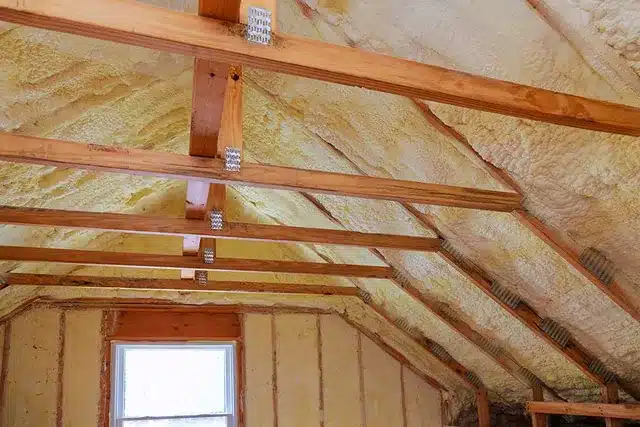The Different Types of Roof Truss Design
Roof trusses are an important part of any building. They provide support for the roof, and help to keep it in place. There are several different types of roof truss design, each with its own advantages and disadvantages. In order to choose the right type of roof truss for your building, you need to understand the different types that are available.
This article will discuss the different types of roof trusses that are available, and will help you choose the right one for your needs. We will discuss the materials used to make roof trusses, their design advantages and disadvantages, and how they are installed. By understanding these factors, you can make an informed decision regarding the best type of roof truss for your building. With the right choice, you can ensure that your roof is secure and safe. So let’s take a look at the different types of roof trusses available.

The most common type of roof truss is the gable-end truss. This type consists of two triangular frames connected together to form a “gable” shape at each end. They are usually made from wood or steel, and are very strong and durable. Gable-end trusses provide good support for the roof, and are usually easy to install. The downside is that they can be more expensive than other types of trusses.
Another type of roof truss is the scissor truss. This type has two frames connected together by a series of “scissor” like joints at each end. They provide good support for the roof, and can be easily installed although they tend to be more costly than gable-end trusses.
The third type of truss is the mono-pitch truss. These have one long frame that slopes downward from front to back. They are often made from steel or aluminum, and provide good support for the roof while also being relatively affordable. The downside is that they can be more difficult to install than other types of trusses.
Finally, there are hip roof trusses. These consist of four frames connected together at each corner, forming a diamond shape. They provide good support for the roof and are usually made from steel or aluminum. The downside is that they tend to be more expensive than other types of trusses due to their complicated design.
Choosing the right type of roof truss for your building depends on several factors such as budget, size, and design preferences. With the right information, you can make an informed decision regarding which type will best suit your needs.
Roof trusses are a great choice for any building due to their strength, stability and cost-effectiveness. Compared to traditional rafters, roof trusses provide a much more rigid and strong support system, which can help better distribute the weight of the roof and reduce the amount of stress on walls and ceilings. This can be especially beneficial in areas with high winds or earthquakes.
In addition to providing extra strength, roof trusses also offer several design advantages. They can be customized to fit almost any shape or size of building, allowing for greater flexibility when designing the layout of your project. Additionally, since they are pre-fabricated in factories and transported on site, they often take less time to install than traditional rafters which require more labor-intensive cutting and fitting at the construction site.
Furthermore, roof trusses are generally cheaper than traditional rafters when you factor in all costs associated with installation and labor. The cost savings come from factory pre-fabrication as well as faster installation times which reduces labor costs. In addition to lower upfront costs, long-term maintenance costs are typically lower due to their greater longevity compared to conventional rafters.
Finally, roof trusses can improve energy efficiency in buildings by creating an enclosed “thermal envelope” that keeps heat inside during winter months and prevents loss of cool air during summer months – this means that you can save money on your energy bills each month!
https://www.google.com/maps?cid=8712185105420420785

